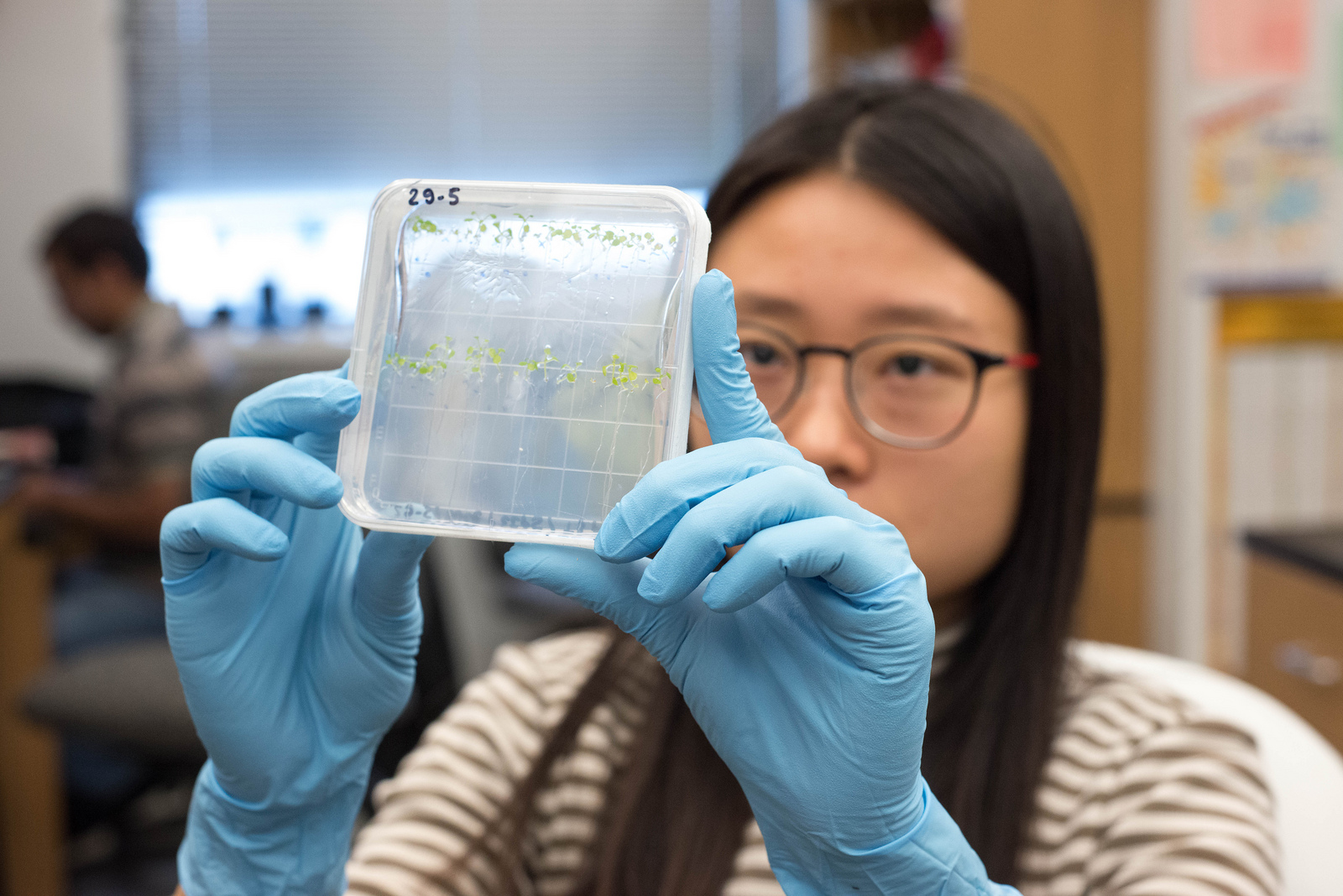Published on
Nga Nguyen hopes to apply her research to increase nutrient contents in crop plants
By Eleanor C. Hasenbeck | Bond LSC

Nga Nguyen, a doctoral candidate in MU’s Division of Plant Sciences, observes samples of a model plant species, Arabidopsis thaliana, in the Mendoza-Cózatl lab at Bond Life Sciences Center on Feb. 7, 2017. | photo by Eleanor C. Hasenbeck, Bond LSC
Plants smell better than animals, at least to Nga Nguyen. That’s one reason why she decided to study them.
“In my undergrad, I studied horticulture,” Nguyen said. “For that you don’t really learn the inside mechanisms of plants, so I decided besides knowing the cultivation techniques, I’d like to also learn about the molecular biology.”
As a fifth year doctoral candidate in the Mendoza-Cózatl lab at Bond Life Sciences Center, she hopes to combine her undergraduate background with her present research in the microbiology of plants to improve the crops of the future.
Nguyen studies how transporter proteins move micronutrients like iron through plants. By understanding how plants move these nutrients in model plants, researchers hope to apply the same understanding and techniques to crops like soy and common beans. Increasing the micronutrient content of these crops could be a useful tool in combatting nutrient deficiencies in areas where people don’t have access to meat and dairy.
But Nguyen says the benefits of studying plants don’t end there. “I hope people pay attention to plant research and study,” Nguyen said. “If you think about it, it’s not just our food, but our clothing and the materials we use.”